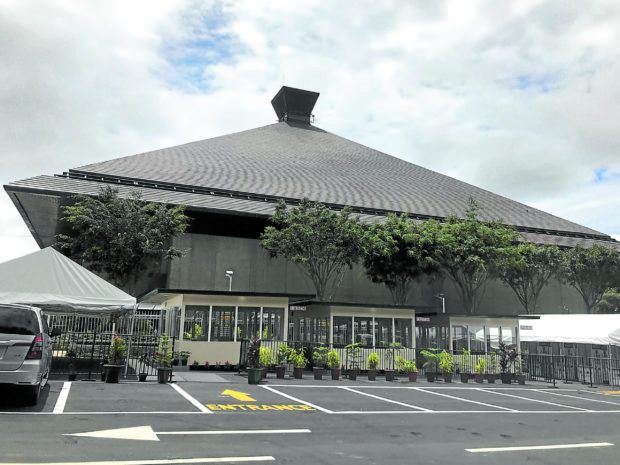
HUB The Baguio Convention Center will serve as a hub where tourists entering Baguio City will be checked for health and travel clearances. —VINCENT CABREZA
BAGUIO CITY, Benguet, Philippines — With health and quarantine protocols in place, the city is bracing for its first batch of tourists, possibly as many as 200 a day, in the third week of this month.
The city government is pushing through with the Sept. 22 reopening of Baguio to tourists using the “travel corridor” strategy it set up with the provinces of Ilocos Norte, Ilocos Sur, La Union and Pangasinan.
These provinces and Baguio are allowing their residents to travel and be exclusive visitors to their tourist spots to help restart leisure businesses that have been shut for seven months due to the coronavirus pandemic.
For Baguio, the loss of income that would have been derived from the canceled Panagbenga (Baguio Flower Festival) and the summer tourists was pegged at P1.6 billion as of August.
Under the experimental “ridge and reef” travel program (formerly called “ridge to reef”), or RnR, Baguio will welcome tourists from the Ilocos region who are clear of the new coronavirus disease (COVID-19) or who have no medical conditions like diabetes or lung disabilities that make them less resistant to the disease.
Tests required
Pregnant tourists will be prohibited, too. But children will be allowed in, though not their grandparents age 60 and above, according to the guidelines drawn up by tourism officials.
All tourists must take the tests at their own expense, particularly the reverse transcription-polymerase chain reaction, or RT-PCR test, before they can pass through Baguio’s borders.
The Baguio Convention Center will serve as the central hub for triage and travel clearances for RnR guests. The RnR governments will require tourists to take the tests one or two days before traveling to their destinations.
Part of the guidelines will require tourists to have their lodgings and itineraries facilitated by travel agents and screened by the host government.
The initial batch of tourists will take part in a test run of Baguio’s surveillance and health system so officials can detect flaws and determine how well the city can live with outsiders while sparing residents from virus transmission.